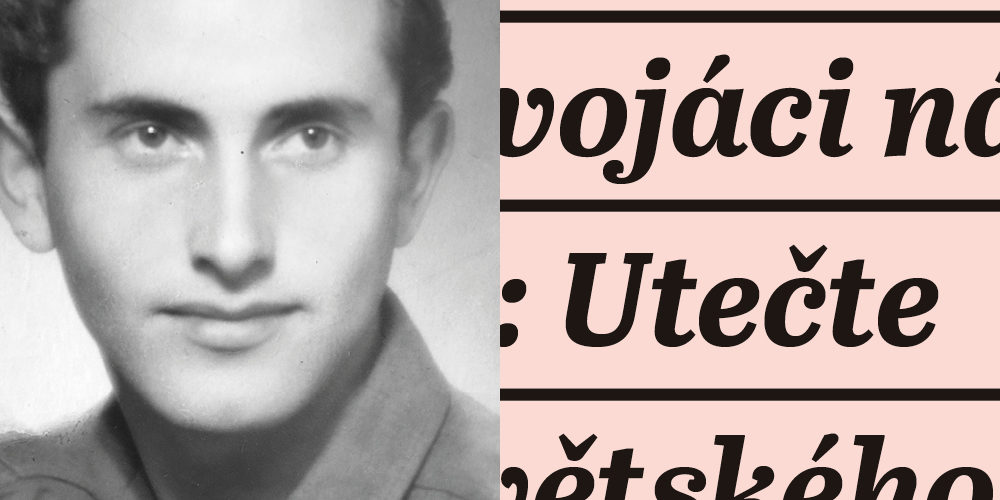In the summer of 1944, the Nazis deported Antonín Moťovič and his relatives from his native Subcarpathian Chust to Auschwitz. Antonín and his father were selected and sent to do forced labor in Mauthausen and Ebensee. His exhausted father died shortly before liberation. Antonín made his way back to Chust, where he was happily reunited with his mother and siblings who had survived the war.
Meanwhile, their home country of Subcarpathian Rus had become part of the Soviet Union, but the Moťovič family considered Czechoslovakia their homeland. The Soviet soldiers themselves warned them that they faced more camps and slave labor in the USSR. Eventually, they moved to Teplice in Bohemia.
Antonín studied medicine and joined the Communist Party. But in 1952, at the urging of Stalin, one of the most famous fabricated political trials took place, this time aimed directly at the highest levels of the Communist Party.
“The Slánský trial was a terrible blow for me. The group of people they executed were mostly Jews.”
Antonín accidentally learned about his personal file. He discovered that in the eyes of his comrades his Jewish origin was a liability. “They followed the same procedure as the Nazis, they made lists of Jews. It was not expertise that decided, but loyalty to the regime. My wife Aliska and I said we would not stay here. We would go where we were wanted.” In 1965, they fled with their children through Yugoslavia and Italy to Israel, where they found a new home.
Surveillance
After February 1948, the communists, following the Soviet model, eliminated civil liberties. They stole from everyone who owned land or other property. They imprisoned thousands of people in labor camps, where many mined uranium ore for the Soviet Union in inhumane conditions. Hundreds of those who were inconvenient were murdered or sentenced to death and executed by the communists (Píka, Horáková, Broj, Slánský, and others). They isolated the country from the free world and introduced censorship. Not everyone surrendered. Brave people founded resistance groups and smuggled refugees across the border. They resisted the incipient totalitarianism with words and deeds.
But it did not start on 25 February 1948. The Communist Party, strengthened by the authority of the Soviet Union with the halo of the “liberator from Nazism,” had already become a political hegemony, as it confirmed by winning the semi-free elections in 1946. The comrades were lying then when they assured voters that they would not go the Soviet way, that “there will be no collective farms in our country.” After the February coup they declared that “the will of the ruling class is above the law.” And this will of the workers was “represented” by the Communist Party. For forty long years the country submitted to the will of the leaders of the Soviet Union. The Communist Party was subject to directives from Moscow on fundamental issues. Soviet advisers oversaw the course of fabricated show trials. However, none of this removes the main responsibility from the domestic actors for the widespread crimes that characterized the domestic totalitarian system.



